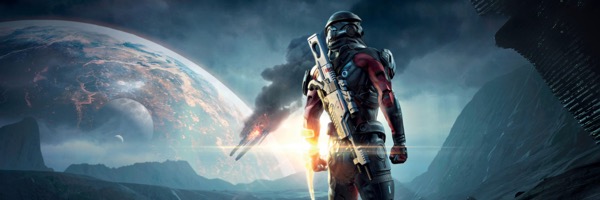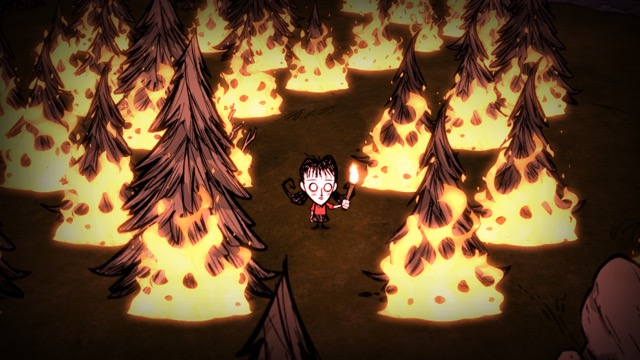Twitch, Youtube, and "New Media"
The online landscape has shifted drastically over the course of the last five years. Websites and blogs used to be king, with dedicated reader bases coming back day after day to read the newest posts. There was a golden period of growth where anyone could make a website, and if they were dedicated, it would probably do pretty well. Coverage of games was done extensively through written articles, blog posts, and reviews, and there was a stable, if slightly adversarial, relationship between these companies and the companies that made games. Sites would get early review copies of games, access to developers for interviews, or in-depth press kits to help prepare coverage. In return, websites agreed to not post coverage of these titles until an agreed upon date. An equilibrium was reached.
Then YouTube came along and changed things. By virtue of its audience, content creators on YouTube relied on heavily edited videos, showing only the most exciting moments of whatever they were talking about. The massive Let’s Play community grouped around different games, and audiences had truly immense amounts of content at their fingertips. Search the name of the game, and they can find dozens of highly edited, exciting videos making it look to be fun, or small communities of super fans religiously playing and dissecting the game for years afterwards. You can see it with Counter Strike, or League of Legends, or DOTA, or Overwatch.
Companies noticed, and they took advantage of it. Many of these videos bordered on advertisements already in how they catered to audiences to draw them and in keep them interested. YouTube content creators live and die by audience retention, so they want to show viewers that they can come back day after day to consistently exciting and engaging content. Companies started reaching out to these channels, sending them free promotional materials or copies of the game, and any mention of this becomes positive advertising for the company. If someone receives a special Skyrim hat from Bethesda and shows it off on their YouTube channel because they feel special, it alters the appearance of Bethesda in the mind of consumers, changing them from a faceless corporate entity into an attentive and caring company that looks after its fans. They don’t have to ask for positive press from the creators, because any mention of them is good.
Compare this to the way in which video game websites handle the same situation. People don’t want to read an article about a special Skyrim hat that the author got from Bethesda, because it reads like an advertisement. Swag, or promotional materials, have been a part of the games industry, and indeed many others, for a long time. But unless the readers can get the exact same item, they don’t care. They view the pieces published by the website to be the statements of that website, regardless of who wrote them. There is less of a connection between the reader and the writer in most cases, and with this personal connection lost, appeals to the consumers work differently. Websites (outside of fan websites) don’t care about swag, because the audience doesn’t care about swag.
As YouTube has gotten larger, smaller content creators have slowly been getting crowded out. The platform enormously favors those with the time and the budget to produce consistent, daily, high quality, ten-minute plus videos, and the number of channels that can do this is low, in the grand scheme of things. Combine this with the too stringent DMCA policies that make it much too easy for a video to be taken down or removed from monetization, and many creators have been forced to diversify.
Twitch was there to pick up the pieces. Communities are only reinforced on Twitch, which shows categorizes livestreams by what games are being played while highlighting high profile streamers. However, on Twitch, channels did not have the benefit of editing to support their content, and personality reigned supreme. Tight knit communities form around streamers as they interact with their audience every single day to the point where a relationship is built. And companies have taken advantage of this. If a streamer is allowed to stream a game early, they are given a sense of exclusivity, and an implicit recommendation of the game from them to their fans. Anything that the company does for the streamer, from joining them on stream to sending them packages of promotional material, brings that company into the community.
There is nothing wrong with marketing or advertisement. It is how content creators can survive, and it is an integral part of the development and release of a game. It is a very necessary force. Print and online media have a whole host of ethical questions relating to companies that are being covered, ostensibly impartially, while these outlets are simultaneously running advertisements for these games. It’s a conflict of interest, and one that needs to be tackled and disclosed.
The issue with marketing comes when it stops appearing as marketing, when companies are manipulating fans and creators into giving them good press without revealing it, when content creators are being paid to create promotional videos without disclosing these facts, when the influence cannot be seen.
So where does that leave sites like ours, sites that don’t exactly fit into any of these molds? How do they survive? Do they attempt to extend their reach, diversify into different areas, start advertising the products that they are covering, or do they hunker down in their niche, trying to carve out a spot? The second is, without a doubt, more difficult. Staying truly independent is a challenge that all websites will face, and whether or not to stay that way is a question that every site will have to answer at some point during its lifespan. It is a question that we struggle with every day, and it is one that we eventually hope to answer.
____________________________________________

Tom has been writing about media since he was a senior in high school. He likes long walks on the beach, dark liquor, and when characters reload guns in action movies.
You Might Also Like:
Situational Invincibility and How it is Ruining Action MoviesExpectations vs Reality
What is Death of the Critic?
_____________________________________________
The Backlog - NOT A HERO
I have a confession to make. Like many of you reading this, I have a list of games that I’ve been meaning play for years. I have way too many games on Steam, and a stack of cases sitting next to my TV. Close to five hundred games now. Maybe more. It makes me feel guilty. I haven’t touched 90% of them in one way or another. I need to fix that. So this week, I dug deep into my backlog and pulled out a game. I want to play all of them; I’ve just never had the chance. Now’s the time.
Devolver Digital has had a pretty outstanding publishing record, at least in my opinion. They tend to attach themselves to some rather interesting titles, and that was what initially drew me towards NOT A HERO. And I’m glad that I decided to check it out. Read More…
Sequels and Reviews
Earlier this week, we publish an article about sequels and how they are viewed in relation to their preceding works, and we wanted to take the time to clarify our position on how we address this concern when writing a review for a sequel. While we do our best to look at each work on its own merits, we cannot discount significant advances or steps back compared to other works within the same franchise. Read More…
The Backlog - Homefront: The Revolution

I have a confession to make. Like many of you reading this, I have a list of games that I’ve been meaning play for years. I have way too many games on Steam, and a stack of cases sitting next to my TV. Close to five hundred games now. Maybe more. It makes me feel guilty. I haven’t touched 90% of them in one way or another. I need to fix that. So this week, I dug deep into my backlog and pulled out a game. I want to play all of them; I’ve just never had the chance. Now’s the time.
The first Homefront was forgotten rather quickly, another in a long line of generic modern shooters that everyone forgot about. I, like many others, thought that it would be a forgotten piece of video game history, a curiosity that somehow got made. So, when it was revived as a semi-open world, first-person shooter, I was baffled, to say the least.
Mass Effect: Andromeda - Review

Mass Effect: Andromeda put itself in a rather unfortunate position before it was even released. It is a follow-up to one of the best franchises of the last generation that tied everything up rather neatly. Bioware has fallen out of favor in recent years, and after a series of rocky previews, Andromeda finally came out. Plagued with issues at launch, Andromeda is not a great game. It isn’t bad, but in many ways, it highlights a lot of the issues that I have with contemporary video games, while taking massive steps backwards in the franchise. It is painfully average and fails to trigger those same emotions that the earlier titles were so good at tugging on.
Updates and Reviews
When we are reviewing a game, we have a unique issue that we don’t encounter with any other type of media. When a game launches, rarely will it stay in the exact same state over the coming days, weeks, months, or even years that it will be in the public. It will be updated and changed over time. Sometimes these updates are small: balance tweaks to multiplayer, text fixes, or subtle adjustments that no one will ever really see. But on the other hand, some alter graphics, story, gameplay, or more. At the root is this idea: patches are fixing something wrong with the game, no matter how big it may be. So how do we deal with this as reviewers. Read More…
The Backlog - SUPERHOT

I have a confession to make. Like many of you reading this, I have a list of games that I’ve been meaning play for years. I have way too many games on Steam, and a stack of cases sitting next to my TV. Close to five hundred games now. Maybe more. It makes me feel guilty. I haven’t touched 90% of them in one way or another. I need to fix that. So this week, I dug deep into my backlog and pulled out a game. I want to play all of them; I’ve just never had the chance. Now’s the time.
Humor in Games
Humor is really hard to nail in games. Its either hit or miss, and when it misses, it can be bad. There are a few games that manage to absolutely nail it (Day of the Tentacle, I’m looking at you) but so many more just absolutely flop, and in doing so, manage to pull you out of the experience entirely.
In the last month I’ve played two big games that have been really bad about it. Ghost Recon: Wildlands and Mass Effect: Andromeda, which both tried to work semi-edgy humor in alongside their more serious stories to varying levels of success. Every time I heard one of these bad jokes, it pulled me out, actively reminding me that I was playing games, poorly written ones at that. Read More…
The Backlog - Don't Starve

I have a confession to make. Like many of you reading this, I have a list of games that I’ve been meaning play for years. I have way too many games on Steam, and a stack of cases sitting next to my TV. Close to five hundred games now. Maybe more. It makes me feel guilty. I haven’t touched 90% of them in one way or another. I need to fix that. So this week, I dug deep into my backlog and pulled out a game. I want to play all of them; I’ve just never had the chance. Now’s the time.
Don’t Starve is a deceptively simple game. At first it seems like you just need to gather food and survive, but the deeper that you get into the game, the more complex systems begin to reveal themselves. There is magic and technology, cultivation and crafting, fearsome enemies hiding in dark places. And in some ways, the game is better for obscuring these systems, letting you discover the systems on your own and adding entire other layers of depth to the systems.
Future Unfolding – Review

Future Unfolding is a hard game to describe. A philosophical, top down exploration of a gorgeous world as you try to figure out what exactly is going on. You are dropped in with basically nothing, and what story is there is confusing to say the least. But there is something magical about wandering through the world here, almost discovering new things and slowly inching your way forward on this quasi-vision quest that you’ve found yourself in the middle of.